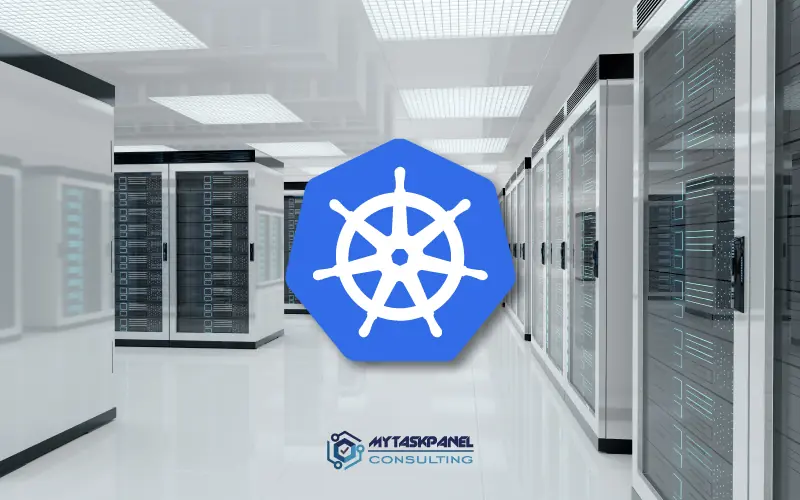Kubernetes has become one of the most popular and widely used tools in the world of application development. Below, we delve into what Kubernetes is, its significance, and its key features.
What is Kubernetes?
Kubernetes is an open-source container orchestration platform designed for the automation of deployments, scaling, and management of containerized applications. It was originally developed by Google and later donated to the Cloud Native Computing Foundation (CNCF) in 2014. It is based on a client-server architecture and runs on any platform, including public, private, and hybrid clouds.
Kubernetes is responsible for managing the containers that host applications and ensuring they run correctly. You can define how your applications should be deployed in containers, how they should be scaled, and how they should be updated. Additionally, Kubernetes handles the allocation of resources to containers, such as memory and storage.
Why is it so important?
Kubernetes provides a standardized and scalable way to deploy and manage applications in containers. It has simplified the container management process, allowing developers to focus on application development rather than dealing with complex infrastructure management.
Furthermore, Kubernetes is compatible with a wide variety of technologies and tools, making it highly flexible and scalable. It offers a significant range of tools and features for monitoring and managing containerized applications, enabling quick identification and resolution of performance and stability issues.
Features and benefits of Kubernetes
- Container orchestration. It handles container management and provides a straightforward way to define how applications should be deployed in containers.
- Scalability. It allows applications in containers to be scaled quickly and easily, enabling the handling of large workloads.
- Self-healing. It can automatically detect and resolve issues within containerized applications, ensuring high availability.
- Resource management. It offers an easy way to manage and allocate resources to containers, such as memory and storage.
- Monitoring and logging. It includes tools and features for monitoring and logging containerized applications, facilitating rapid identification of performance and stability issues.
- Portability. It is compatible with a wide range of technologies and tools, making it highly flexible and scalable. Moreover, it runs on any platform, including public, private, and hybrid clouds.
- Integration with CI/CD tools. It integrates with Continuous Integration and Continuous Deployment (CI/CD) tools, allowing the automation of the build, test, and deployment process for containerized applications.
Use cases
A wide variety of companies and organizations utilize Kubernetes for container orchestration and containerized application management. Here are some of the most common use cases:
- Containerized application deployment. Companies employ it to efficiently and scalably deploy applications in containers.
- Web services. Businesses use it to manage and scale high-availability web services.
- Big Data. Companies use it for the management and orchestration of Big Data clusters.
- Internet of Things (IoT). Companies use it to manage IoT infrastructures and containerized applications for IoT.
Kubernetes has revolutionized container orchestration and has become an essential tool for developers. With the help of Kubernetes, you can rapidly, efficiently, and scalably create and deploy containerized applications. It provides a wide variety of features and tools for container management and orchestration, allowing developers to focus on building applications rather than worrying about complex infrastructure management.










